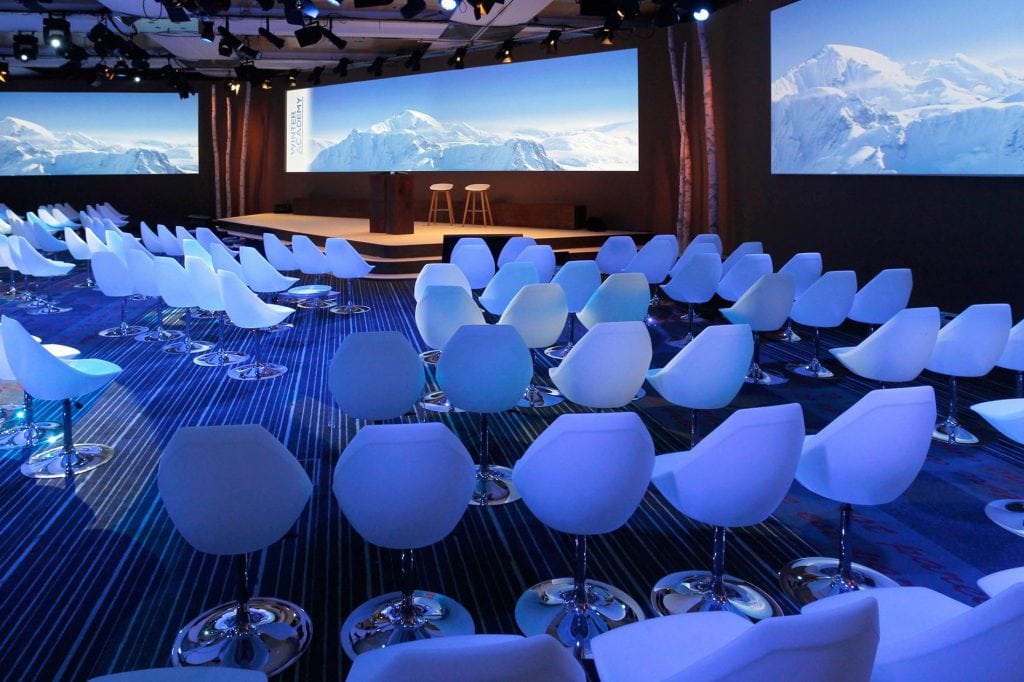Skift Take
Accor has no plans to follow Marriott International's lead with commission cuts for meetings, but then again Accor's relatively weak presence in North America means it has to focus on drawing in clients instead of pushing them away.
When Marriott International announced it will slash commissions for meeting planners at the end of March in North America, many suggested that the change will lead to a wider swath of cuts across the industry.
Others are not so sure. From the perspective of AccorHotels, which has a weaker position in North America than Marriott or Hilton Worldwide, following Marriott’s example would be self-defeating for hotel brands looking to grow their business and exposure in a crowded market.
Will Accor cut its commission rates to match its competition in North America?
“The easy answer is no change,” said Chris Cahill, CEO of AccorHotels’ luxury brands, at Accorhotels’ Global Meeting Exchange 2018 in Montreal on Thursday. “Marriott historically has experimented on their partner relationships and this is another foray that way. It will be interesting to see if the industry follows suit.”
He went on to posit that Marriott’s position in North America is stronger than its presence in other regions across the globe, giving Marriott the extra power to make a move like this in the North American meetings marketplace. Yet, the high demand for meetings space coupled with a lack of supply is likely the real factor behind the challenges in North America and not consolidation.
“Consolidation may affect certain markets but I’m not sure it had any impact on pricing,” Cahill said later in the day. “It’s harder and harder to get space, [but] it’s got less to do with consolidation and more to do with whether or not we get more product on the market.”
He also opined on the reasons why a giant hotel company would single out a successful market in this way: doing business on a global basis means spending money on expensive technology and service innovations. Taking a small hit from meeting planners in the U.S. could be worth the ability to invest in tools to enrich the company’s offerings on a global basis.
While planners are skeptical about this, particularly given the inability of hotel giants to design and deploy any sort of meeting booking platform that is easy to use, the move makes sense as a business decision by Marriott as a company looking to focus on the sectors that make it the most money worldwide.
“The consolidation issue in our industry is: if you look globally, even Marriott doesn’t represent a big portion of the total hotel accommodations sector, [when you account for] independent and non-branded hotels,” said Cahill. “I talked earlier about peoples demands going from experiences to transformation, from a brand perspective it’s about the need to have more knowledge of our customers and that takes technology and costs money. The cost to provide the technology infrastructure and support to hotels to deliver the service to customers is expensive. [This will] continue to create consolidation. You’ll see in parts of the world in which groups will adopt different policies with their partners.”
At the event, Accor showed off its new meeting space at the Fairmont Queen Elizabeth Hotel that was designed in conjunction with C2 Montreal, which features rooms with various concepts designed to allow for creative activities and brainstorming sessions.
The forward-looking concept, however, won’t be deployed as a new standard across Accor’s brands, making it more of a one-off experiment than a wider investment in more flexible meeting spaces. Still, the company is open to owners looking to renovate or refurbish with the new experience in mind.
Asia in particular, noted Cahill, hasn’t bought into the experiential or transformative travel trends that have been driven to the forefront of the industry by organizations like C2.
“I think it will be less about [particular] sectors of business [requesting C2 designed meeting spaces] than companies [doing so] based on their culture or the way they’re evolving their workspace,” said Cahill. “… No doubt we will have owners who want to do something like this.”
Have a confidential tip for Skift? Get in touch
Tags: accor, commissions, marriott, meetings, meetingsiq
Photo credit: AccorHotels doesn't plan on playing any games with its commission for event bookings at North American hotels, although the jury is still out on whether other hotel giants will follow Marriott's lead. Skift
